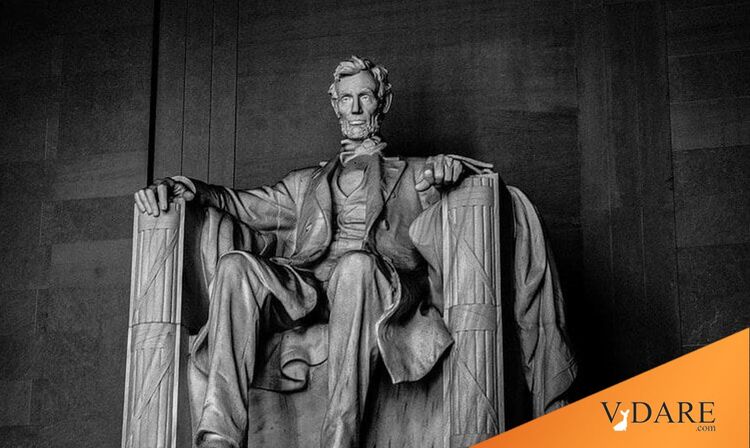
By Steve Sailer
12/08/2012
In 1862, Abraham Lincoln invited a couple of dozen affluent black freedmen to meet with him so he could tell them they ought to leave the country.
They were unenthusiastic.
In recent decades, historians have typically alleged that Lincoln then grew in racial sensitivity and dropped his long-nurtured plan to persuade black ex-slaves to move to colonies in warmer climes, whether Liberia, Hispaniola, or Central America.
An article in the NYT by historian Sebastian Page documents that this is just statue-polishing by historians. Despite a lack of enthusiasm among his political allies, Lincoln continued to work on his plans for facilitating self-deportation of ex-slaves up through his death in April 1865. For example, the same morning he issued the Emancipation Proclamation, January 1, 1863, Lincoln signed a contract establishing a colony for 5,000 American ex-slaves in Haiti.
Of course, today, the idea of helping African-Americans move to a black ruled state like Haiti or Liberia sounds utterly inhumane.
Yet, Zionism has worked out reasonably well for Mormons in Utah and for European Jews in the Middle East, so why was it racist of Lincoln to think that African-Americans could do a decent job of ruling themselves too?
Indeed, isn’t our assumption that they couldn’t kind of racist of us?
How was Lincoln supposed to know 150 years ago that Haiti would today be a byword for bad government? We think of black-colonized Liberia as a failed state where the natives massacred their African-American elite on the beach in 1980, but how was Lincoln supposed to know that "Can’t we all get along?" wouldn’t work among blacks in Liberia?
This is a content archive of VDARE.com, which Letitia James forced off of the Internet using lawfare.